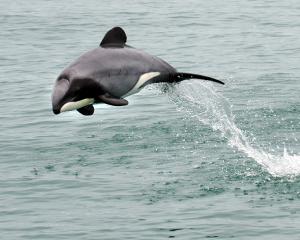The money will fund a two-year pilot scheme which will involve university staff working with talented year 13 science pupils and teachers from smaller and less well resourced schools.
The aim was to ensure pupils from those schools got the same opportunities as everyone else and had a greater chance of succeeding in their tertiary studies, university academic and international deputy vice-chancellor Prof Vernon Squire, said yesterday.
"Small schools, rural schools and low-decile schools don't have the facilities such as sophisticated science laboratories that bigger schools have, yet we know there are talented science pupils in smaller schools, too.
"The academy is a way of redressing the balance."
The university had been given a list of 50-60 schools, including 12 in Otago, five in Southland, two on the West Coast and 10 in Canterbury, he said.
He did not want to name them as discussions were continuing about which schools might nominate participants.
Prof Squire said the academy idea had come from Education Minister Anne Tolley and the university had been pleased to develop it.
He was confident the programme would be popular and would continue after 2012.
Otago had run its successful Hands On Science summer camp for secondary school pupils for 20 years, Prof Squire said.
About 200 people attended each year, of whom about 40% went on to enrol at Otago.
That programme would continue he said.
While the Hands On Science programme was about introducing students to a wide range of science options in a fun way, the academy would have a strong work component and a focus on NCEA science curriculum requirements, he said.
Participants would attend five-day residential science camps in Dunedin in January and July and would stay in touch through the year through an online science community network.
The only cost for them would be a $200 registration fee.
However, the academy would not be "reproducing school at the university", Prof Squire said.
"We will also stretch them by introducing them to non-curriculum topics."
Mrs Tolley said in a statement yesterday the Government would contribute $593,000 over two years.
"This is an exciting new venture with the potential to lift student achievement in science.
The new academy will have an impact on the number of young people moving from school science to tertiary science study, and will also point some of our bright young minds towards a science career."












